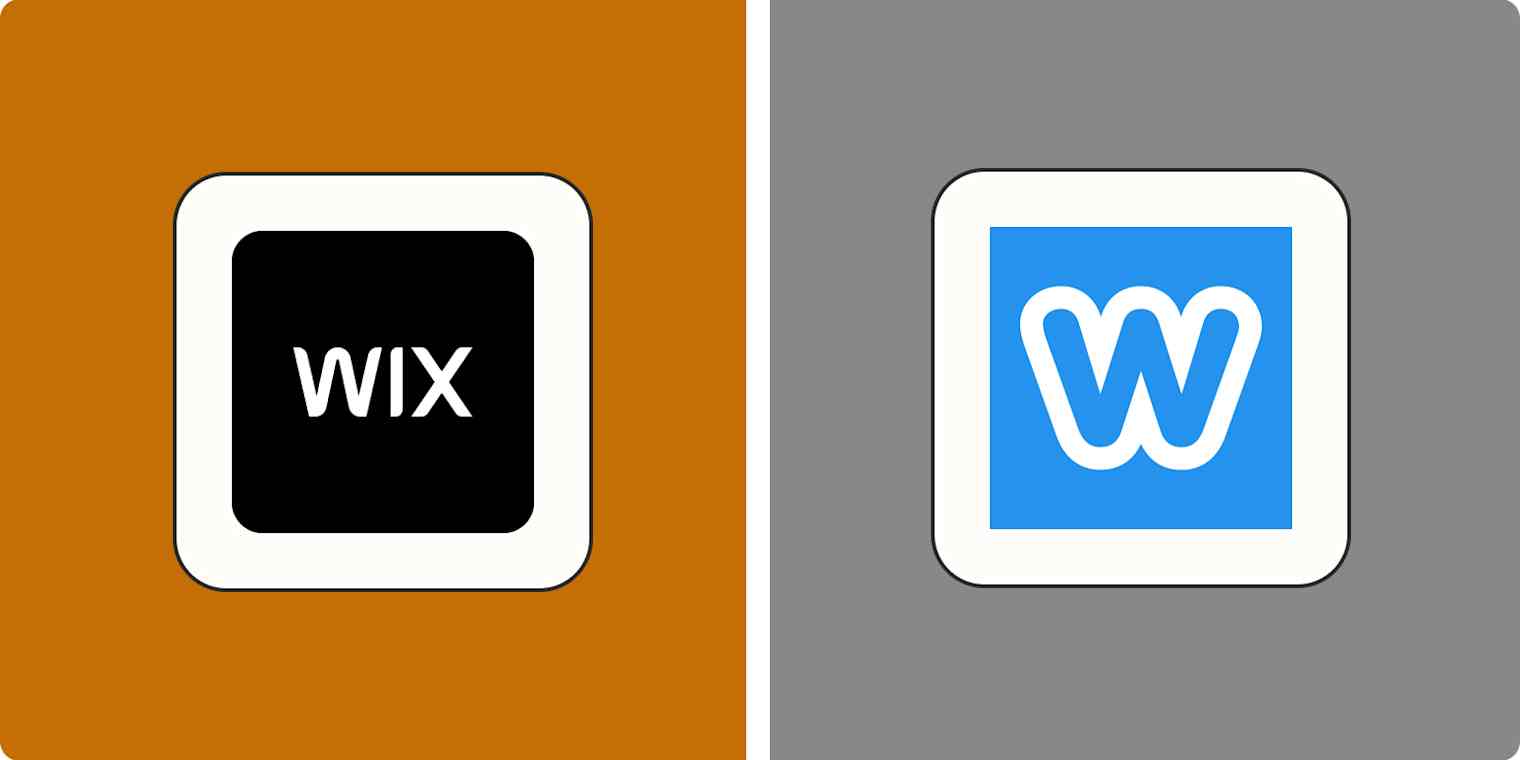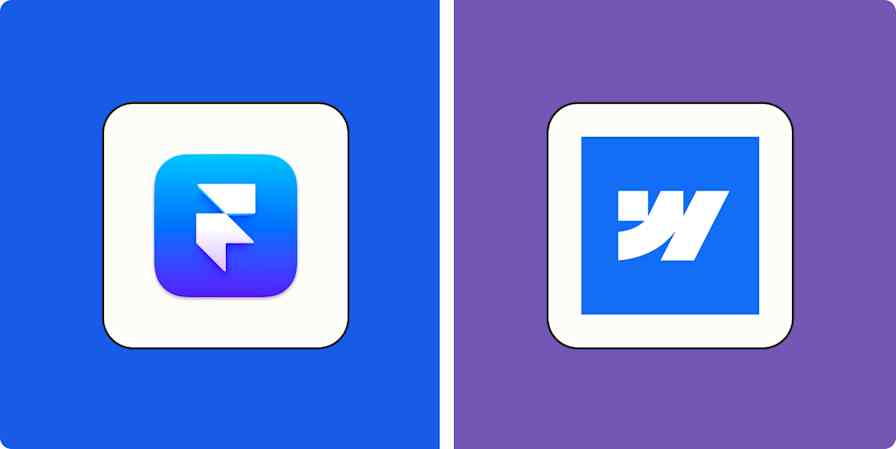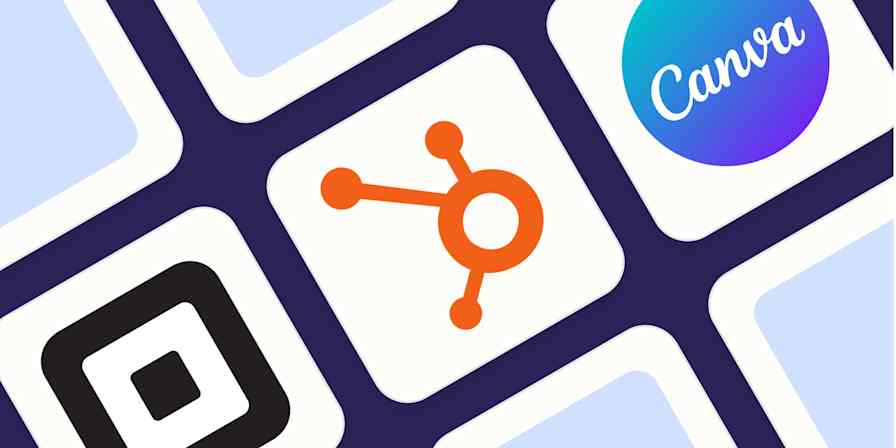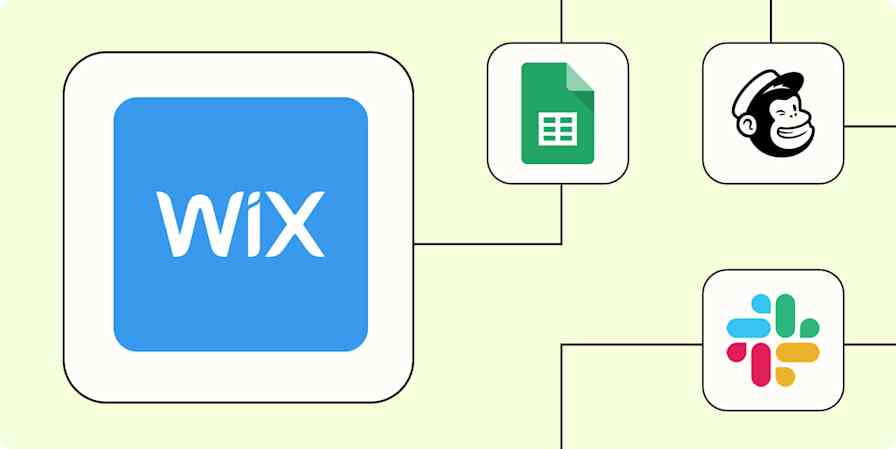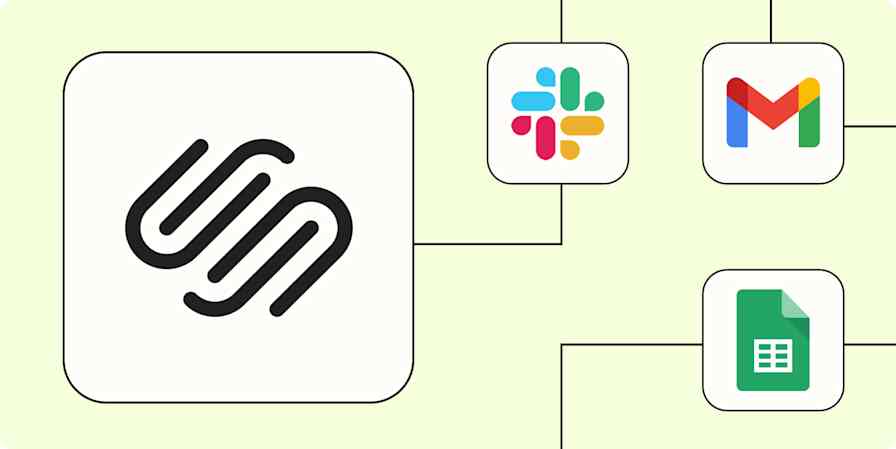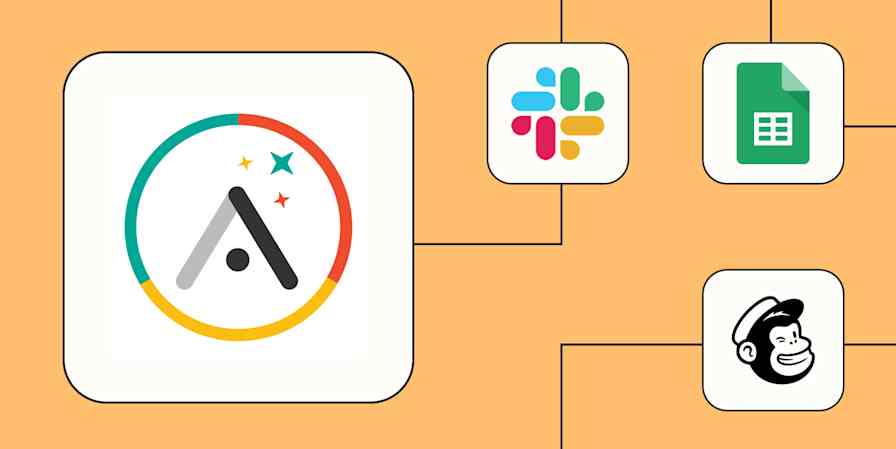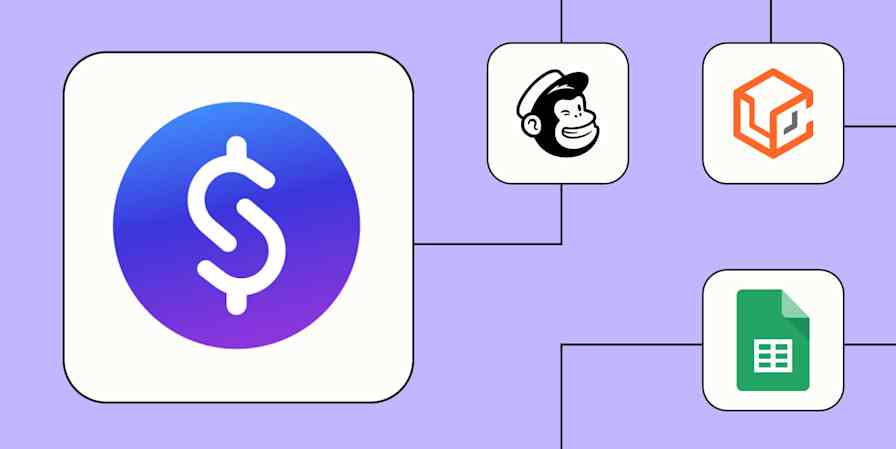It's not often that I can be this clear about a recommendation, but here it is: you probably shouldn't start any new projects with Weebly.
Since its acquisition by Square, Weebly has been on a steady path to irrelevance. Weebly.com is now basically a lead gen site for Square's website builder, and even Weebly's official support pages now recommend launching new sites with Square instead. You can still technically sign up for Weebly, and existing sites are still being supported (for now), but the product hasn't gotten any meaningful updates in years.
Wix is sort of the opposite: it's a website builder that's gotten even better over the last few years. It now includes sophisticated AI and automation features, an integrated marketing suite, and a new product aimed at designers—Wix Studio—that competes with more advanced tools like Webflow.
Square also deserves consideration if you're looking for an alternative to Weebly, particularly if you need an eCommerce website that gives you the option to sell offline. Square provides impressive customer management, marketing, and analytics features too.
If you still use Weebly, you should probably migrate to an alternative like Wix or Square. In this article, I'll explain why both website builders are solid options for current and former Weebly users and help you decide whether Wix or Square makes the most sense for your needs.
Table of contents:
Wix has more native integrations, but both connect with Zapier
Wix is more affordable, but Square offers solid value for retailers
Wix vs. Square at a glance
Here's a quick breakdown of the key difference between these website builders:
Square is best for businesses with in-person sales. Its online-offline integration and powerful customer management system make it perfect for restaurants, retailers, and service businesses that need unified operations across physical and digital channels.
Wix is best for most other website projects. Whether you need a portfolio site or run a direct-to-consumer eCommerce business, Wix's design flexibility, extensive templates, and AI building tools make it a reliable choice for any project.
| Wix | Square |
|---|---|---|
Setup and ease of use | ⭐⭐⭐⭐⭐ AI-powered setup with conversational chatbot plus intuitive drag-and-drop editor | ⭐⭐⭐⭐ Quick setup, especially if you already have products in Square's system |
Design | ⭐⭐⭐⭐⭐ 900+ templates with full drag-and-drop freedom; advanced customization through Wix Studio | ⭐⭐ Limited templates but functional designs; less flexible than Wix |
Price | ⭐⭐⭐⭐ Plans start at $17/month, though you need the $29/month plan for eCommerce; more affordable overall; basic free plan, but your site is accessed on a Wix subdomain | ⭐⭐⭐ Plans start at $49/month and include website and in-store POS tools; there's also a legacy $29/month plan that only includes the website builder, though it looks like it's being phased out; basic free plan, but your site is accessed on a Square subdomain |
eCommerce tools | ⭐⭐⭐⭐ Strong eCommerce features; POS options available for in-person sales | ⭐⭐⭐⭐⭐ Industry-leading POS integration; seamless online-offline commerce |
Marketing | ⭐⭐⭐⭐⭐ Comprehensive marketing suite with AI Marketing Agent and automation tools | ⭐⭐⭐⭐ Powerful CRM and customer management; requires separate subscription for email/SMS |
Business management | ⭐⭐⭐ Solid inventory and business tools; robust analytics | ⭐⭐⭐⭐⭐ Complete business ecosystem with inventory, scheduling, and analytics |
Integrations | ⭐⭐⭐⭐⭐ 800+ apps in Wix App Market; connects to thousands more via Zapier | ⭐⭐⭐⭐⭐ 400+ apps on Square App Marketplace; connects to thousands more via Zapier |
Weebly is being gradually phased out in favor of Square
Ever since Weebly was acquired by Square, users have been trying to figure out what would happen next. There's been a bit of drama on that front lately.
First, Weebly posted a notice saying, "At this time, we can only commit to supporting the Weebly editor until July 2025." Later, that message was removed, and July 2025 came and went without an obvious change. Then, two of Weebly's founding engineers confirmed that the Weebly editor had been "sidelined pretty aggressively" within Square in recent years, and has struggled with reliability issues.
At this point, you can still sign up for Weebly with the understanding that you'll only use it for portfolio sites or blogs (not eCommerce). Otherwise, you'll be redirected to Square during the signup process.
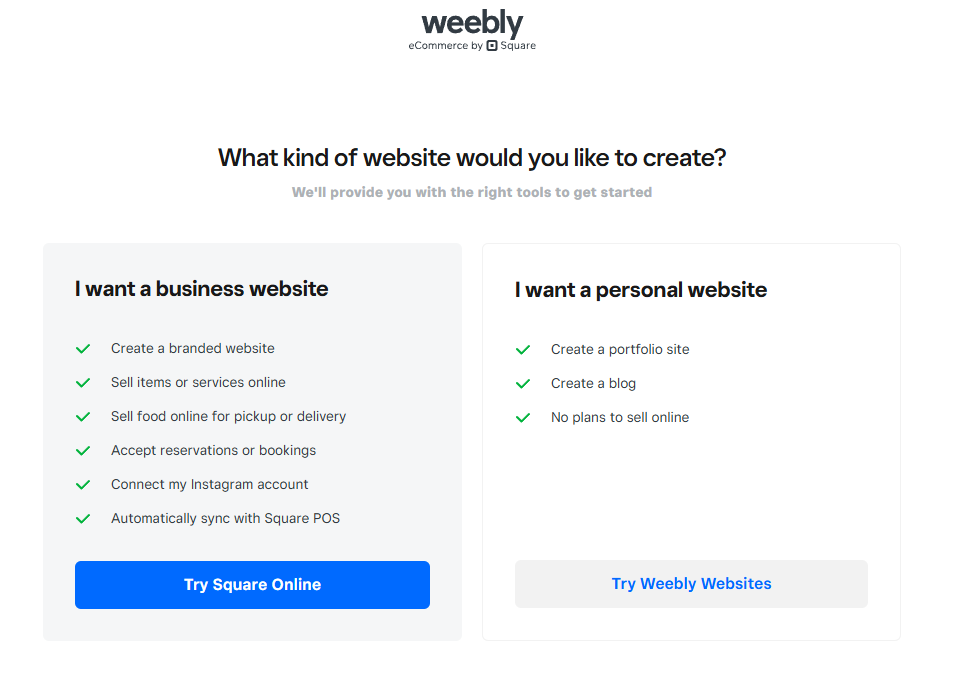
But even if you're just building a basic personal site, it doesn't make sense to build with Weebly since it could be shut down at any time. Plus, there are plenty of other free website builders to choose from.
Instead, let's take a look at Square and Wix as alternatives.
Wix can handle anything from personal sites to eCommerce
Wix is by far the most flexible of the two options. If you want a website builder that can manage anything you throw at it, from portfolio sites to full-blown direct-to-consumer eCommerce brands, Wix is a great choice.
It's also incredibly easy to use, and has gotten even easier in recent years thanks to Wix's AI website builder, which lets you set your website up conversationally by interacting with Wix's chatbot.
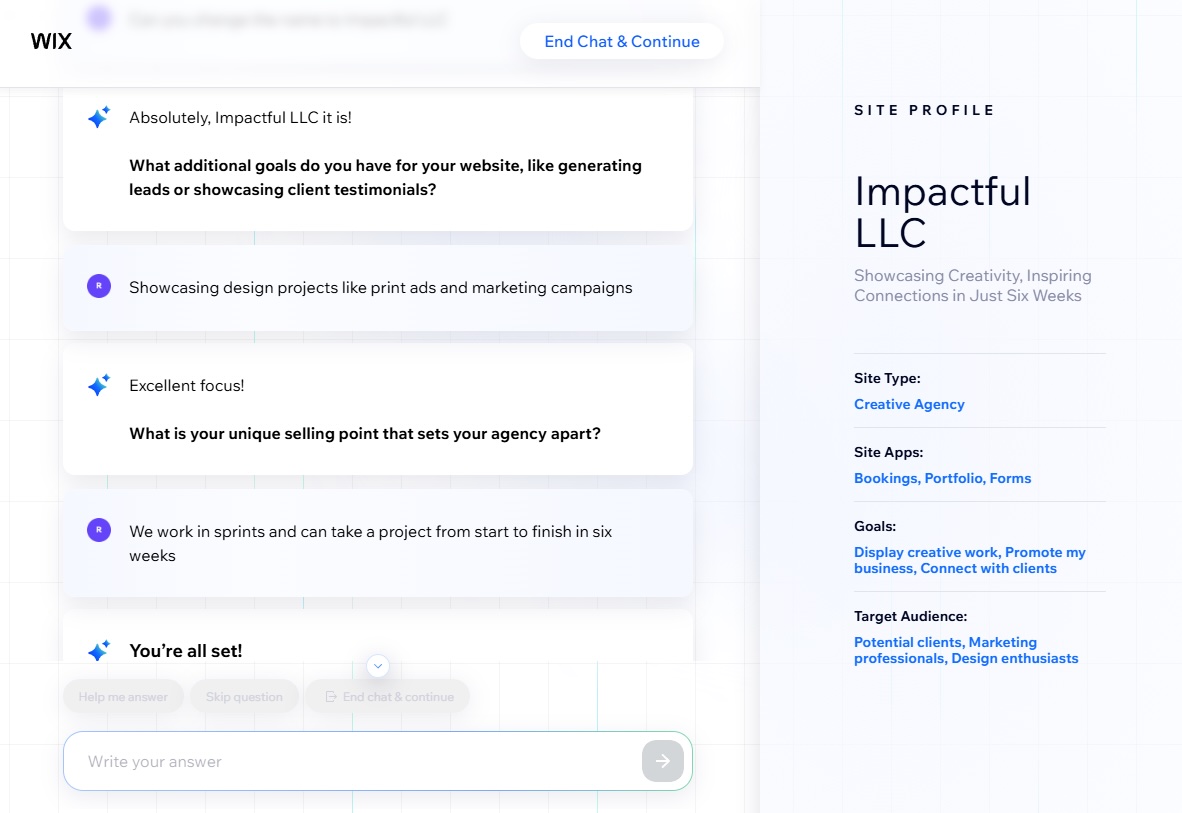
You can take this a step further by generating your design and text with AI too, though I've had mixed results on that front.
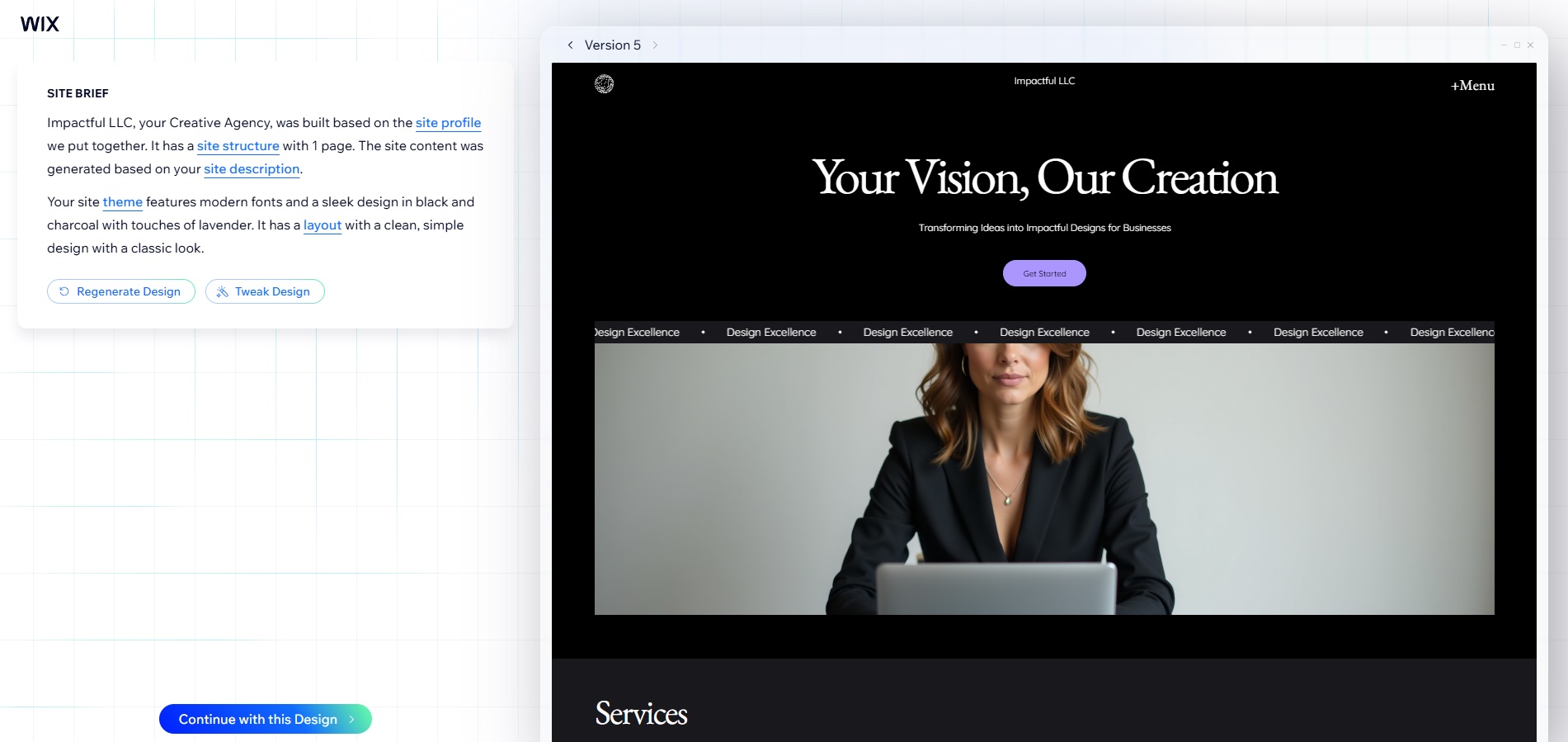
Wix has a strong selection of 900+ templates, so it's not hard to find something that works for both your industry and the style you're looking for.

Wix's editor has a tremendous amount of options for customizing your site, and everything is user-friendly. You also get full drag-and-drop freedom: you can put any element anywhere on the canvas, and Wix will display it rather than requiring you to slot it into a preset grid system.
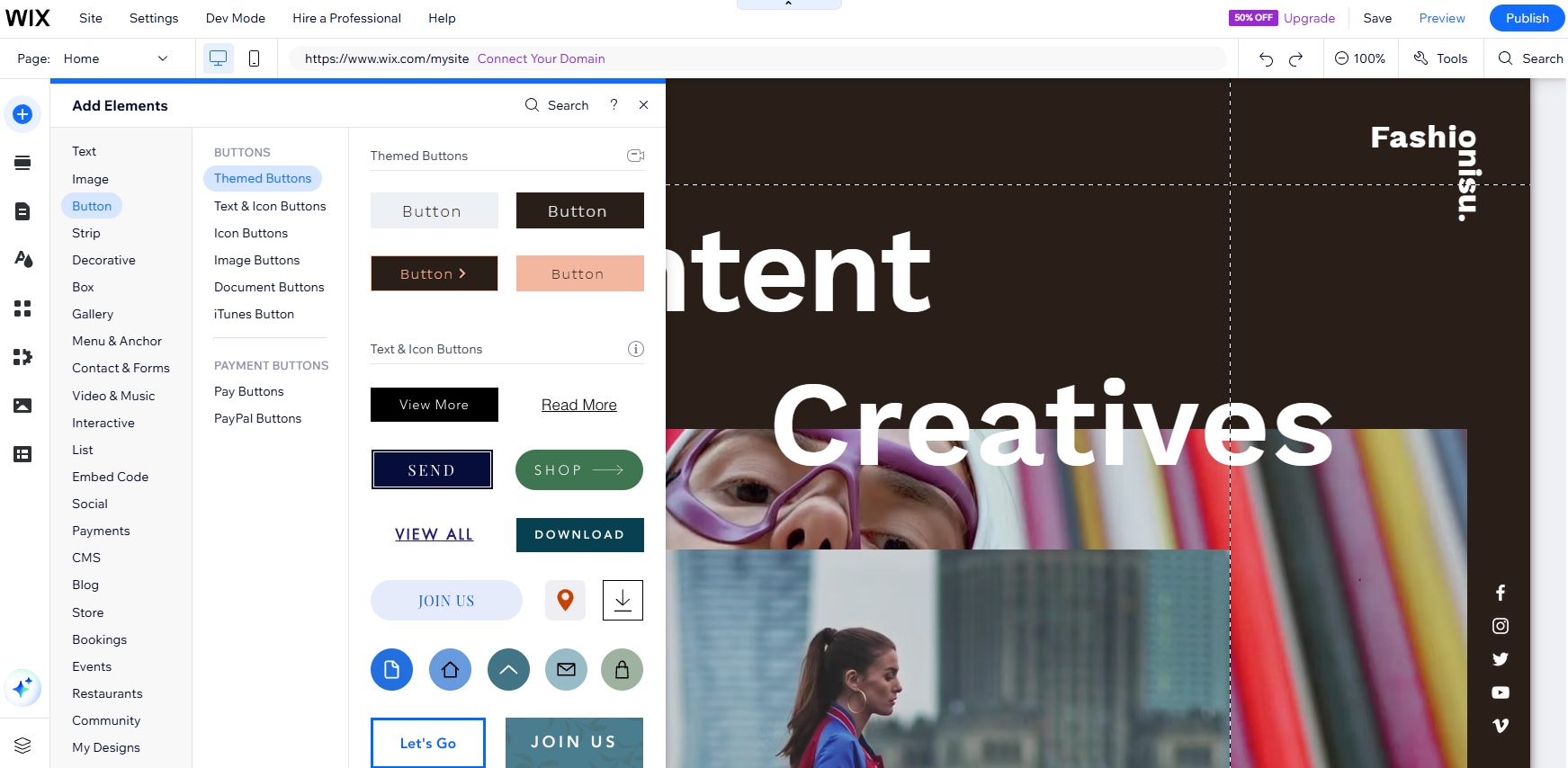
While Wix's standard interface is tailored for beginners, there's now a separate (but similarly-priced) product called Wix Studio that's made for designers, marketers, and brands. Its templates are much slicker, you can add complex animations and effects, and there are advanced features like global sections and a content management system.
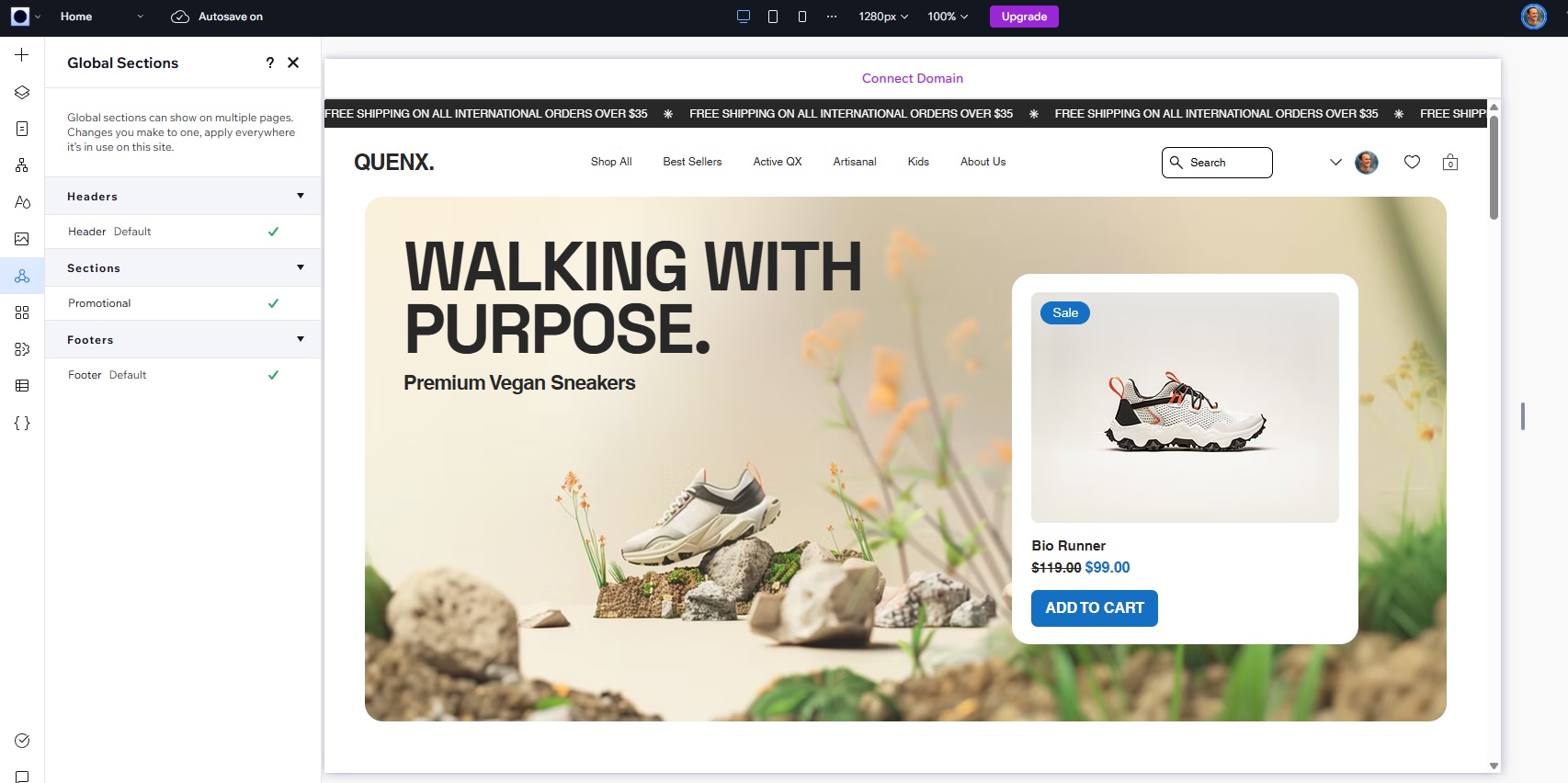
If you run a retail shop, Wix now offers complete inventory management and point of sale solutions for in-person payments, including a POS register and a mobile card reader to handle on-the-go credit card payments.
Square is strictly focused on commerce
Although Wix has started edging onto Square's turf by selling POS hardware, it'll take a while before it's a real challenger. That's because Square—the US market leader in point of sale systems—has been in the brick-and-mortar sales game since 2009 and now supports millions of sellers.
The last time you bought a coffee and the barista flipped the screen around for you to add a tip? That was almost certainly Square.
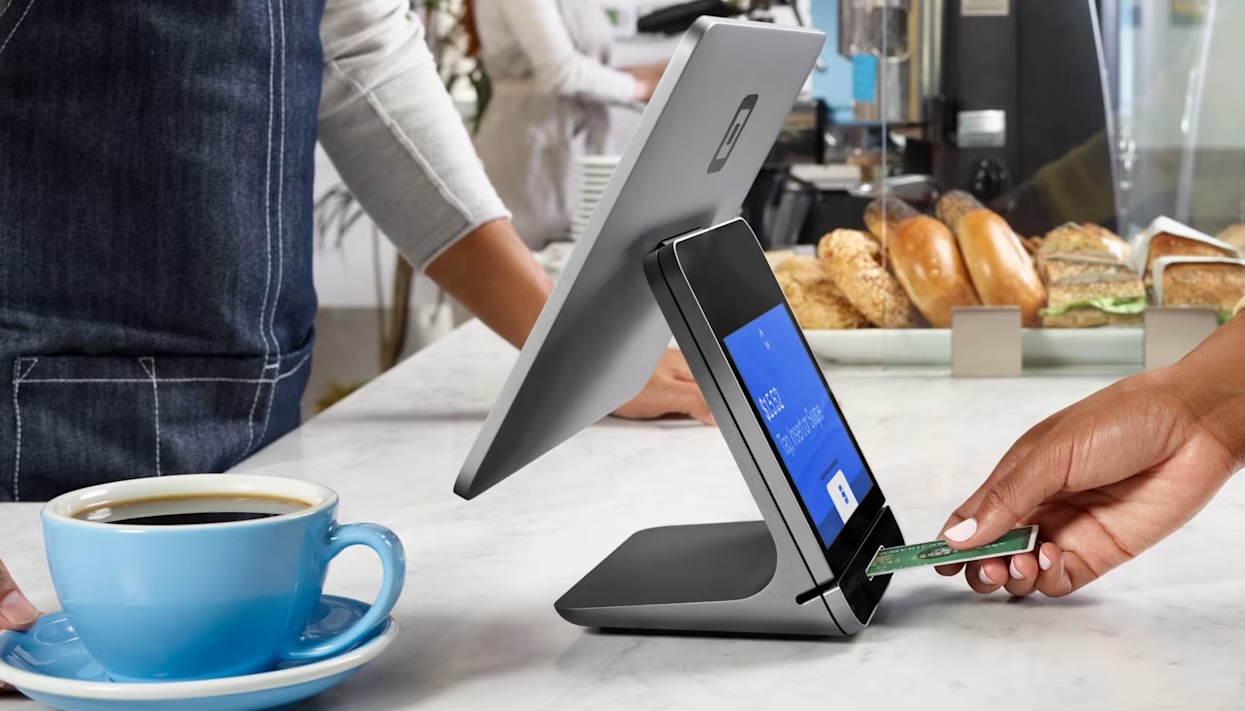
Square's website builder exists to keep those sellers in the Square ecosystem, and it also creates a one-stop shop for new customers who need an integrated online/offline commerce experience. If your brand relies entirely on online sales, Square can accommodate that, but you're not really playing to its strengths—and you'll get more design flexibility on other platforms. If you have any sort of in-person component to your business, though, you should consider it.
Square's nearly two decades of experience in retail means, at this point, the platform has thought of pretty much anything small businesses might need. Retailers get low-stock alerts, bulk inventory management, and integrated in-person and online sales. Restaurants get DoorDash integration, reports on top-performing dishes, and order-ready texts for pickups. Spas and salons get online or in-person payments, email and SMS appointment reminders, and staff scheduling.
The main reason to build a website with Square is the fact that everything's integrated into a single system. If a customer orders something online, it's immediately reflected in your in-store stock. Plus, your online and in-store sales are all consolidated into a single analytics dashboard.
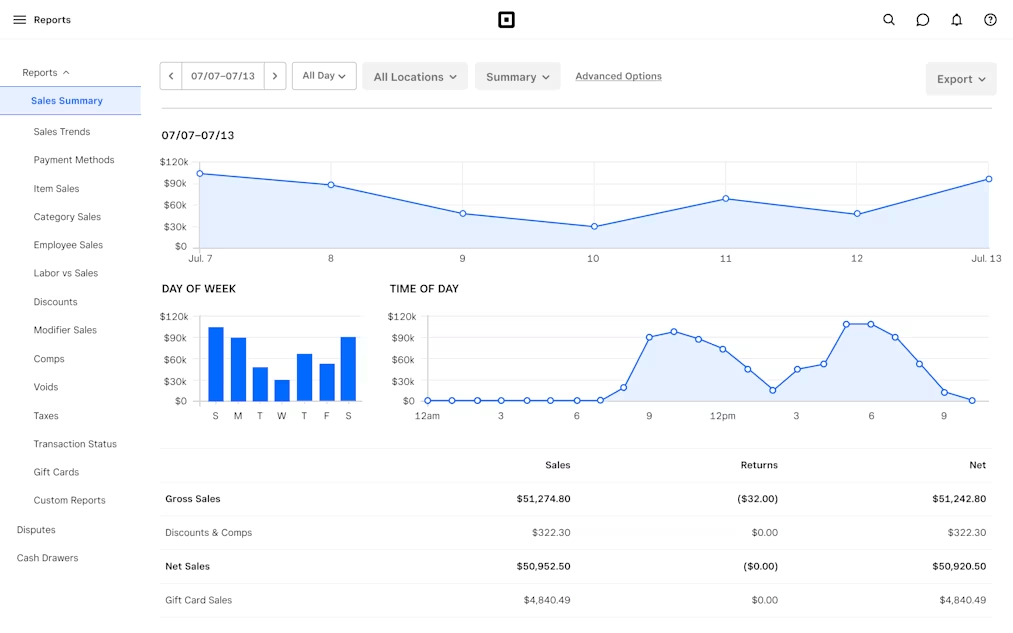
As you might have picked up on by now, Square's website building functionality isn't its primary selling point. It's not as flexible as Wix, and it's definitely not as customizable as Wix Studio. That said, it's a decent website builder: it's quick and easy to put a good-looking site together, particularly if you already have products loaded into Square's system.
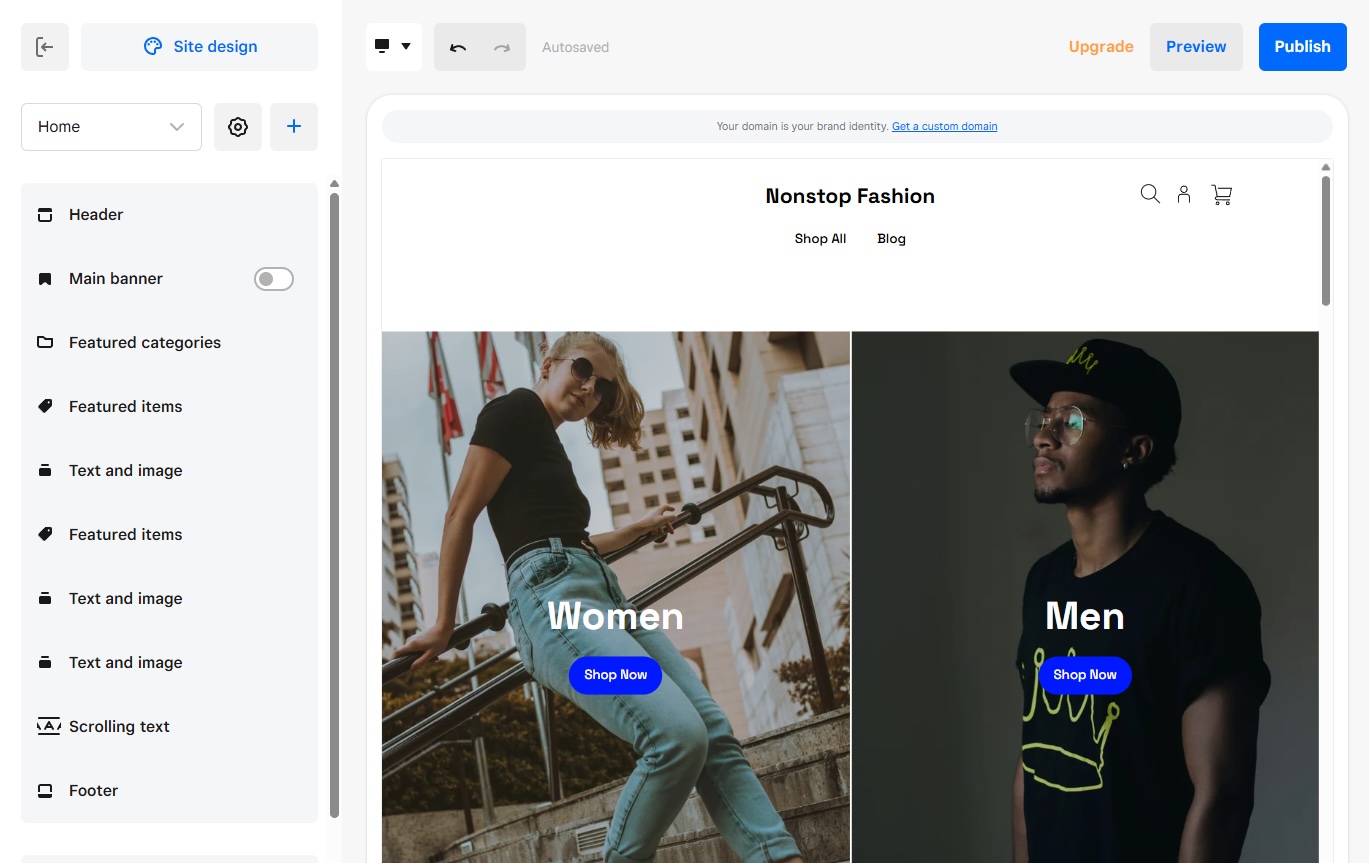
Square's website templates aren't especially attractive, and there aren't many of them. But I do like how functional they are: if you pick a template designed for fast casual restaurants, for example, it includes exactly what you need—menus, online ordering, customer accounts, pickup and delivery integration—without a lot of extra distractions.
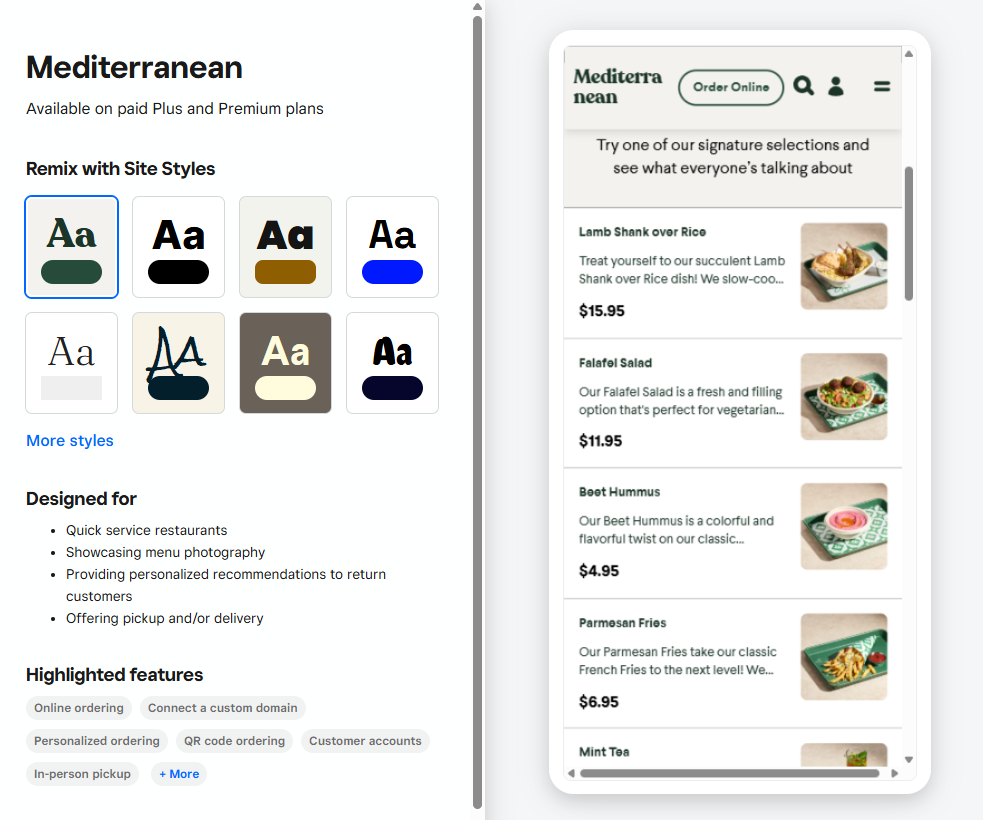
One notable feature is the product upload process, which takes full advantage of AI to speed things along. Square includes a built-in AI product description generator, and if you're using your phone, you can use Square's Photo Studio app to quickly turn regular images into professional-quality product photos.
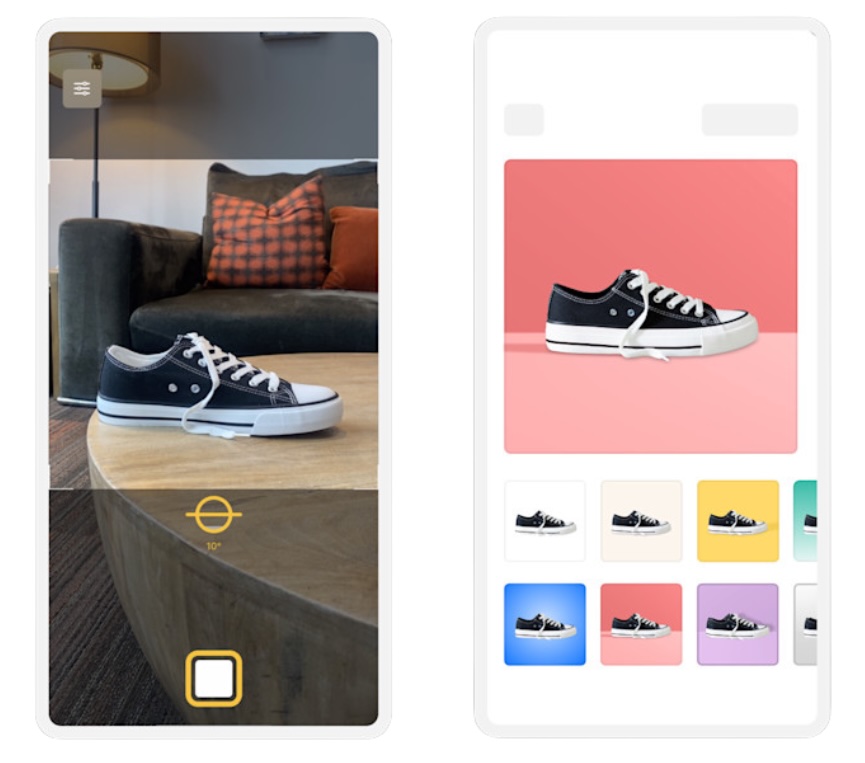
Both offer impressive built-in marketing tools
Some website builders focus obsessively on design, then bolt on a few marketing features as an afterthought. Wix and Square are different. Each has surprisingly powerful marketing and automation features that make it easy to follow up with customers after they take an action on your website.
Let's start with Wix. The first sign that Wix takes marketing seriously is its dedicated Marketing tab. In addition to the basics, like SEO, you can also manage everything from email automations to Facebook ads here. If your marketing needs are relatively basic, your entire marketing operation could conceivably be run from the Wix dashboard.
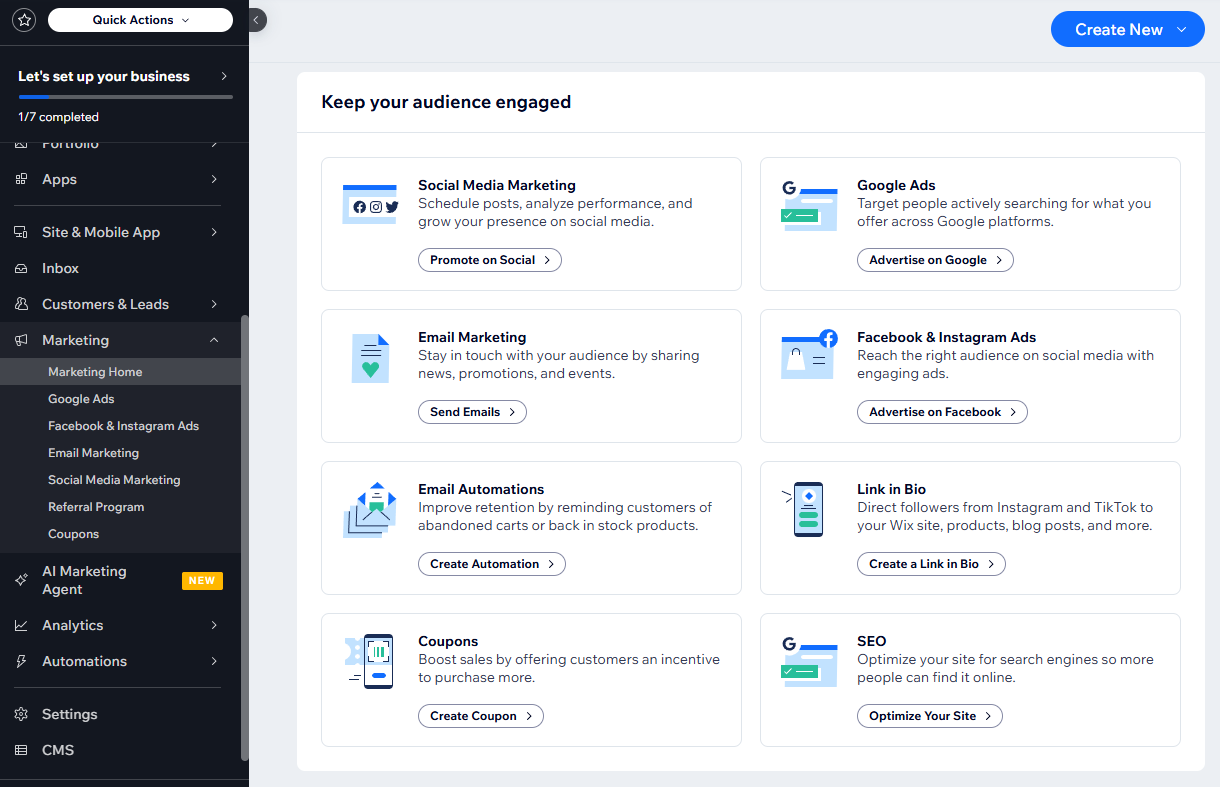
Wix also offers a basic built-in CRM, a chat widget for your website, and an inbox so you can manage cross-channel chats—like messages on Facebook, live chat, and email—in one place.
You also get access to Wix's new AI Marketing Agent, which not only creates a marketing plan for you but also executes it. You'll still need to review and approve what it creates, of course, and it's probably a good idea to make some tweaks so you don't hurt your engagement by publishing generic content. Still, for anyone who feels overwhelmed at the thought of managing blogs, social posts, emails, and ads, bringing it all together in one place—and automating it—is a huge win.
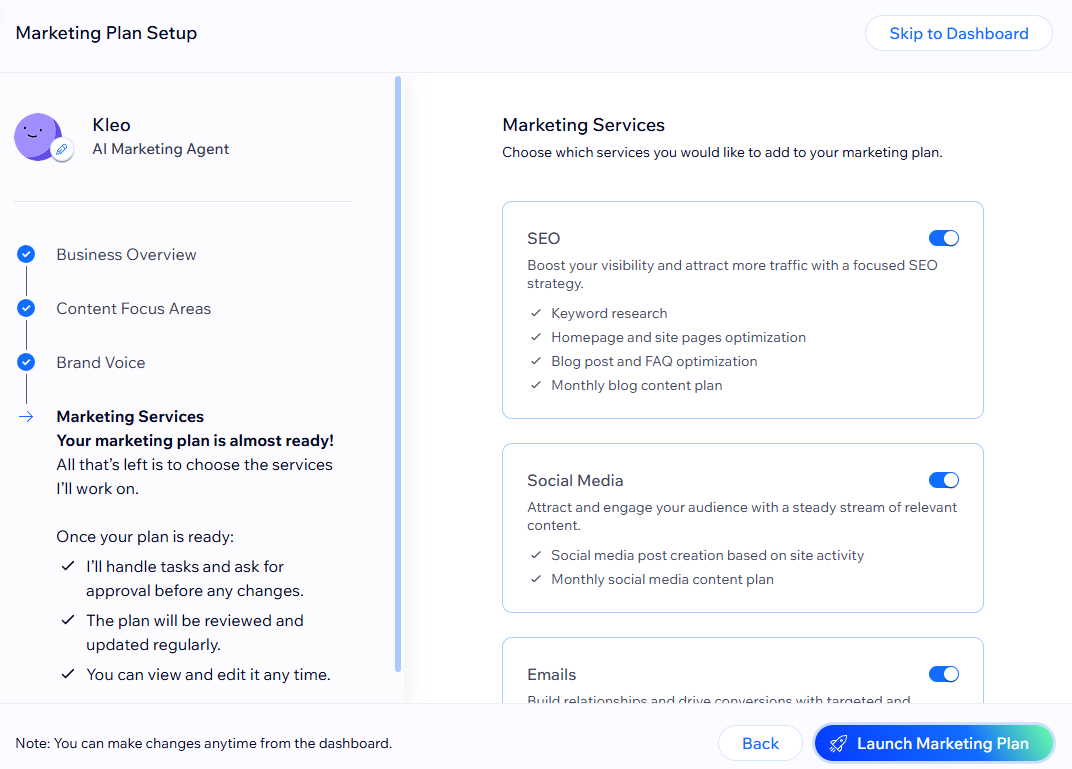
Wix also offers a robust set of automation features, including a new workflow builder along with simpler one-click rules to do things like sending emails, starting customer chats, and creating to-dos.
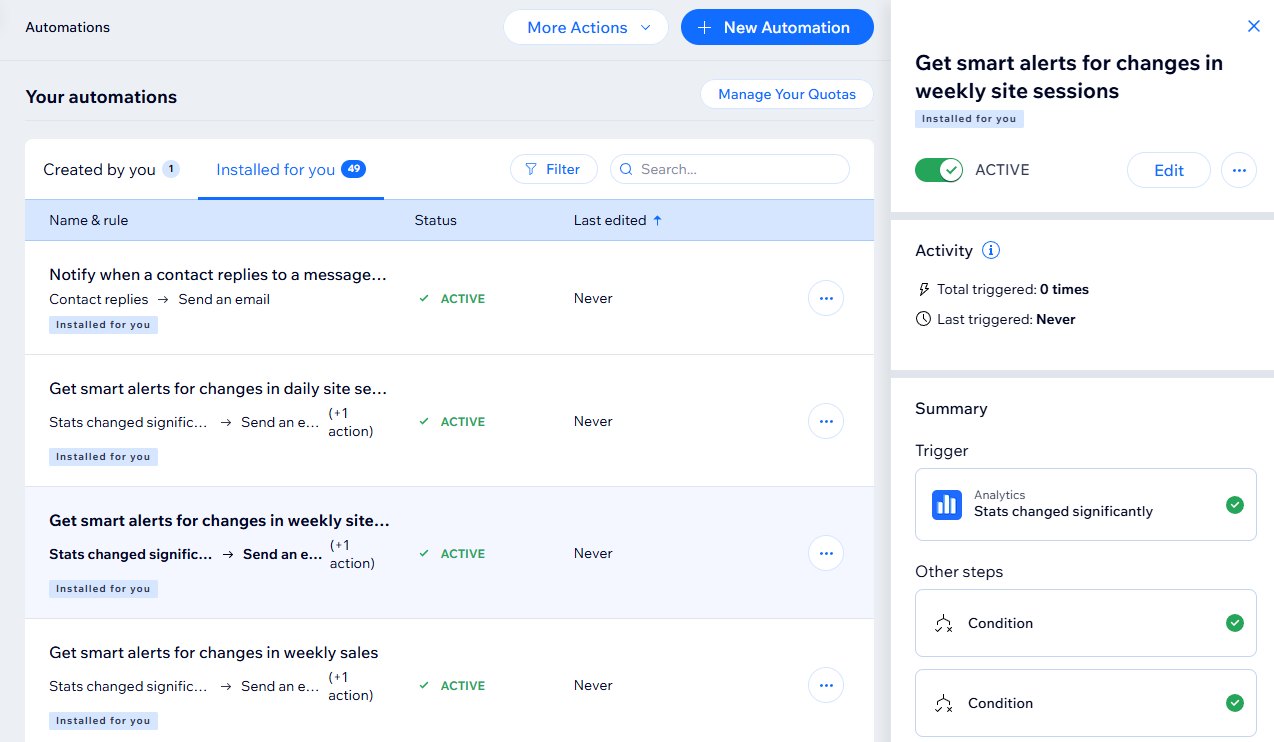
Square's built-in marketing tools are equally impressive, but different. Like Wix, it functions as a general marketing hub, but its strength is customer management. Square's CRM keeps track of every interaction your customer has ever had with your brand, from transactions to SMS messages, and you can also attach notes and files.
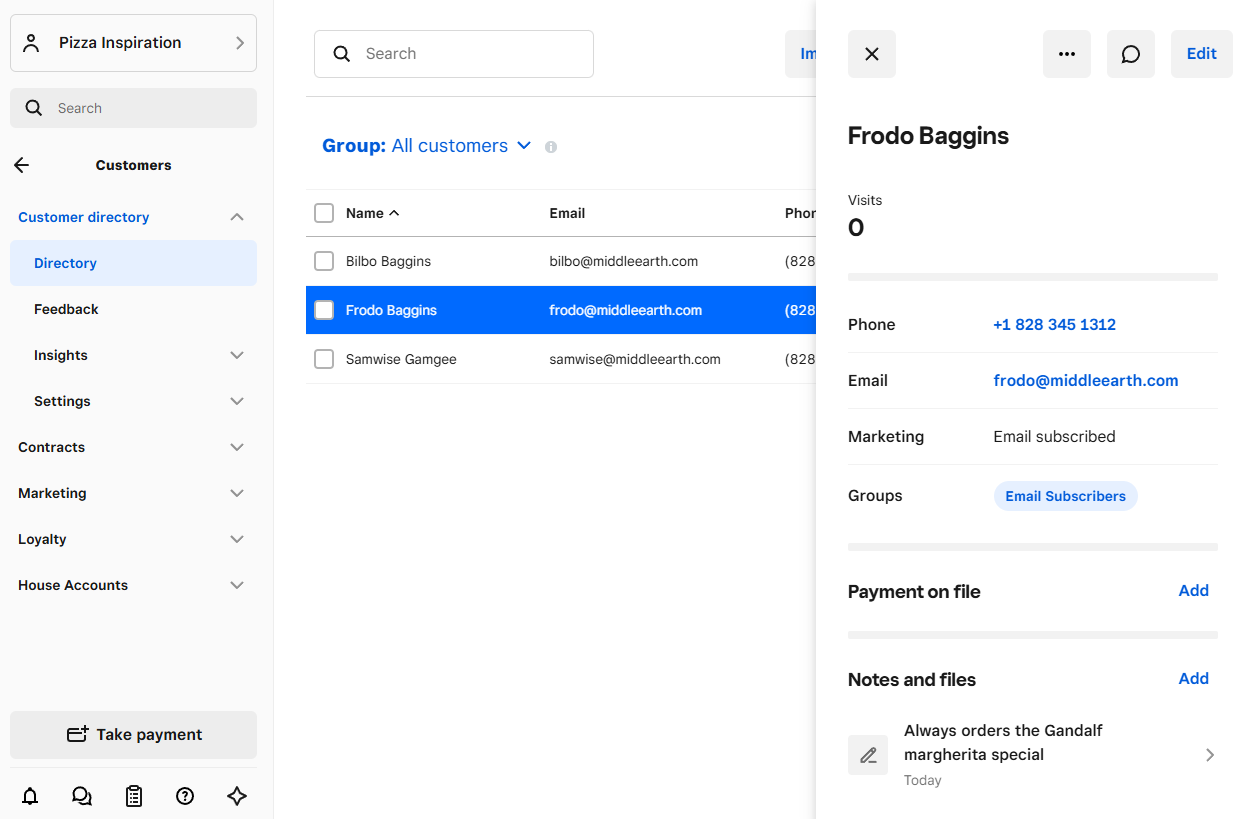
If you have an appointment-based business like a salon or spa, you can use Square Assistant to automatically chat with customers and manage bookings and cancellations on your behalf.
You can also run full email automation and text message campaigns from Square, along with loyalty programs and Google review requests. Keep in mind that you'll need to add a separate Square Marketing subscription (in addition to your Square subscription) to access the email and text message features, though.
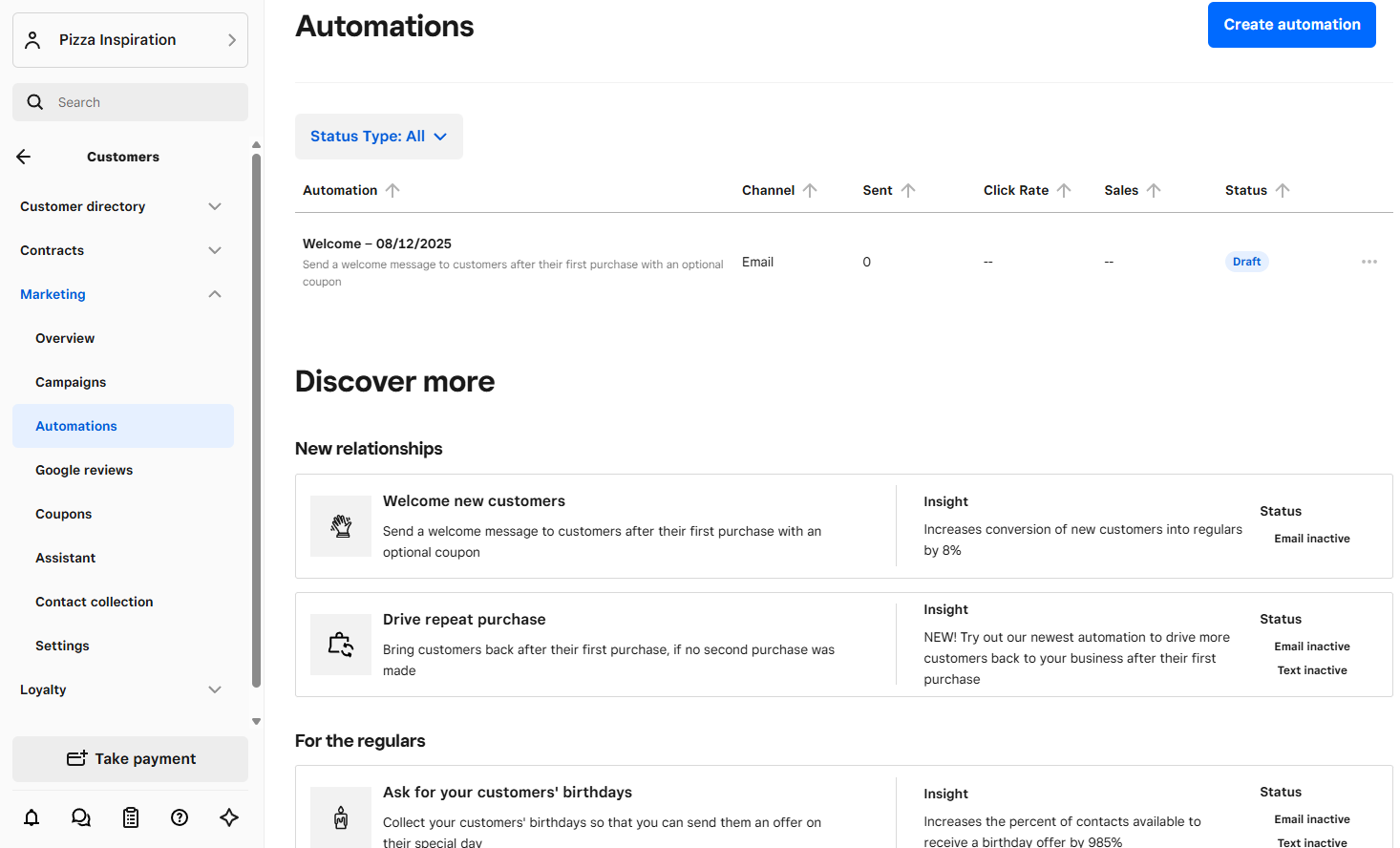
Wix has more native integrations, but both connect with thousands of apps via Zapier
Wix's built-in integrations are supplemented by the Wix App Market, which includes 800+ free and paid apps in categories as diverse as podcasting, dropshipping, and crowdfunding. Some are built directly by Wix, but many are offered by third parties.
Square offers over 400 apps on the Square App Marketplace, many of which are focused on streamlining the retail experience for niche use cases. For example, an app called Whoosh customizes the Square platform for golf courses and racquet courts.
You can extend this functionality even further by connecting either Wix or Square with Zapier so you can trigger workflows in thousands of other apps. For example, a new booking on your site could trigger a multi-step workflow where OpenAI automatically generates a personalized confirmation email, Google Calendar schedules the event, and your CRM updates the customer's profile with relevant tags. With thousands of apps and AI-powered actions at your disposal, you can design end-to-end systems that adapt dynamically to customer behavior—turning your website or store into an intelligent, automated operation.
Learn more about how to automate Wix or how to automate Square, or take a look at these examples.
Add or update Mailchimp subscribers when a new Wix Form is submitted
Add rows to Google Sheets spreadsheets when a new Wix Form is submitted
Save new Square transactions to Google Sheets rows
Zapier is the most connected AI orchestration platform—integrating with thousands of apps from partners like Google, Salesforce, and Microsoft. Use interfaces, data tables, and logic to build secure, automated, AI-powered systems for your business-critical workflows across your organization's technology stack. Learn more.
Wix is more affordable, but Square offers solid value for retailers
Wix and Square both offer a free plan, but they're very different. Wix's free plan gives you access to hundreds of templates, but it won't let you accept payments; Square gives you access to all of the basics you need for selling online, including a free credit card reader for in-person sales, but it doesn't provide any website templates.
For most people, though, these free plans are pretty much just for development and testing. Both Wix and Square require you to run free websites on a branded subdomain (like mysite.wixsite.com/siteaddress), so if you're using your site for any sort of professional purpose, you'll want to upgrade to avoid this.
Traditionally, Square has sold its website builder as a separate subscription for $29/month, which you'd have to sign up for in addition to the Square POS subscription that enables in-store sales. But as I was writing this article, Square was testing new pricing that bundles the online store together with the standard Square app.
You might still have access to the old $29/month website-only plan, but if not, you'll see bundled pricing starting at $49/month. Square's $49/month bundled Plus plan adds useful features to your online store like order-status text alerts, abandoned cart emails, and product reviews. By upgrading to the $149/month Premium plan, you get a lower transaction rate for in-person purchases (2.4% + $0.15 instead of 2.9% + $0.30) along with the option to give users accurate real-time shipping rates during checkout.
Wix's basic Light plan costs $17/month and removes Wix branding, though you still don't get access to eCommerce features unless you upgrade to the $29/month Core plan. The $39/month Business plan adds advanced eCommerce features like multiple currencies, automated sales tax, and a loyalty and referral program. There's also a $159/month Business Elite plan that lets you add up to 100 collaborators to your site and gives you higher limits on everything from SMS notifications to the number of currencies you can support.
Although Wix is more affordable than Square, that doesn't mean it always offers more value. If you're a small retailer paying $49/month to Square to handle all of your physical and online commerce infrastructure, that's a great deal.
Wix vs. Square: Which website builder is best?
Weebly was one of the original website builders and once powered tens of millions of sites, so it's bittersweet to see it going the way of Geocities. Fortunately, Wix and Square are both solid alternatives.
Square is the best choice if in-person sales are a part of your business. Its online-offline integration and powerful customer management system make it perfect for restaurants, retailers, and service businesses. While the website builder itself isn't the most flexible, the unified ecosystem and business tools justify the higher price for businesses that juggle both brick-and-mortar and online sales.
Most everyone else should use Wix. Whether you need a portfolio site or run a direct-to-consumer eCommerce business, Wix is flexible enough to handle your project, and it offers an impressive set of built-in marketing features at no extra cost. Wix's 900+ templates and AI building tool can get you up and running fast, and if you need even more design power, you can always switch to Wix Studio.
Related reading:
This article was originally published in March 2019 by David Harrington, and has also had contributions from Amanda Pell, Luke Strauss, Michael Kern. The most recent update was in August 2025.
